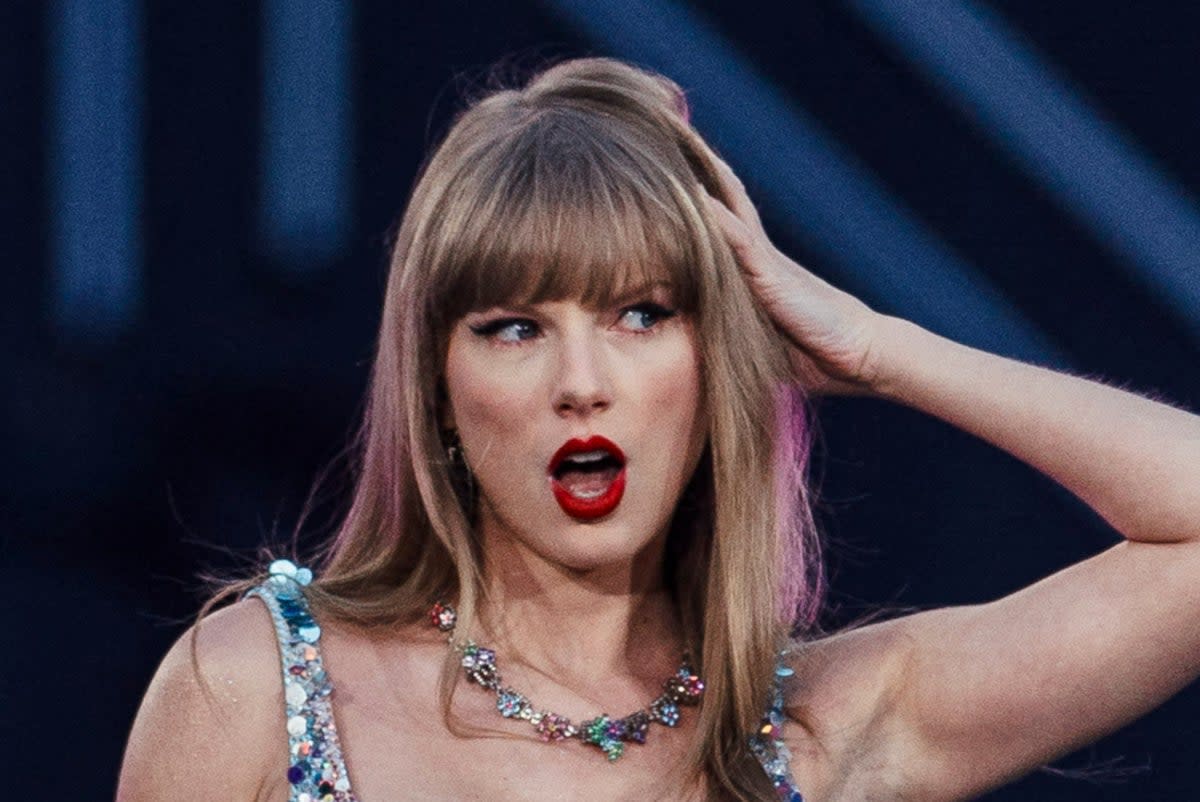Taylor Swift’s three-hour gigs might not be ‘psychotic’ – but admit it, that’s a slog

This week, the wheels of Taylor Swift’s much-ballyhooed private jet touched down on UK soil. In stadiums across the country, the American pop sensation will perform her Eras Tour show – a mammoth, career-spanning endeavour that encompasses music from all of her 11 albums, and lasts for three whole hours (on top of a 45-minute opening set from Paramore). Those unwilling or unable to shell out triple-digit fees for tickets can always make do by watching the filmed, unabridged version of the concert on Disney+; that one lasts for three and a half hours, and streams under the title The Eras Tour (Taylor’s Version). It makes sense choosing that name – you couldn’t exactly call it the Swift Version.
But how long is too long, when it comes to live music? Twenty-two-year-old pop prodigy Billie Eilish recently described the prospect of a three-hour gig as “literally psychotic”, telling followers on social media: “Nobody wants that. You guys don’t want that. I don’t want that. I don’t even want that as a fan.” Of course, that’s easy enough for Eilish to say. If you listened to her entire three-album, two-EP discography back to back, it would still fall short of Swift’s marathon set times. But, while the “bad guy” singer-songwriter didn’t call out The Eras Tour by name, it certainly resonates with Swift’s current maximalist streak.
Let’s face it: overlong gigs can be a slog. There’s no escaping the whiff of indulgence when an artist simply decides to claim squatter’s rights on a stage. It’s also a curatorial failure, of sorts. Only the most ardent of Swifties would argue that there’s no fat to trim, no filler padding out the bangers. A three-hour gig presents logistical problems, too, when it comes to getting home at the end of the night, plus biological ones – the perennial Toilet Break Question. Let’s not forget the economic ramifications, either: a three-hour gig is necessarily more expensive to stage, a cost that inevitably falls on the concertgoers to make up. And that’s before you account for the greater spending on drinks over a three-hour period – not insignificant, especially at big stadium venues where a single pint often requires a small loan.
Of course, it’s not as simple as a gig being “too long”. There’s no denying the formidable physical feat of a three-hour gig; if you feel fatigued as an audience member, imagine being up there on stage. In some cases, the extra hour might elevate a gig from a fun night out to one of the best nights of your life. Bruce Springsteen, perhaps the foremost “long gigger” in popular music, has made it part of his very brand. And it works: his two curfew-straining sets at London’s Hyde Park last year were maybe the standout live music event of the year. But Springsteen has the catalogue to back it up – a full half-century of recorded material, enough great songs to fill a days-long residency with no repeats. (Tunnel of Love didn’t even feature at all!)
Assessing the relative merits of Swift’s catalogue may largely be a matter of taste, but the context for the gigs is entirely different: Swift is 34 years old, and yet still manages to subdivide her career into 10 distinct “eras”, most requiring a total costume change. If Springsteen were to attempt the same concept, he’d end up with two dozen eras, 18 outfit changes, and a performance that probably wouldn’t finish until morning. On some level, the very premise of the Eras Tour speaks to the way music is treated in the modern streaming era: we must have all of it, right there, all of the time. The specificity of a setlist is one of the delicate joys of live music. You go in hoping to hear certain songs; you leave pleased, or disappointed, or surprised, but that’s part of the experience. The Eras Tour promises to give you everything, a definitive show – but that’s antithetical to live music’s unique appeal: immediacy.
The alternative, though, is surely worse: there are few things more disappointing than a gig that feels too short. I personally keep a grudging mental checklist of gigs I’ve seen that were brilliant, but ended frustratingly after 50 minutes or less (mostly American rappers, many of whom understandably don’t really see what the big deal is about playing to a crowd of mostly white Englishmen in, say, Shepherd’s Bush). The ever-rising price of gig tickets leaves you feeling shortchanged if it’s all over in under an hour – even if the performance is flawless.
The whining seems more egregious when we’re talking about movies, when meaty, substantive works of art such as Martin Scorsese’s Killers of the Flower Moon or Christopher Nolan’s Oppenheimer are slagged off for being indulgently long. Often, there are artistic and narrative reasons for the length: it is necessary to tell the story in the way that the artist demands. But then again, this could be said of The Eras Tour, conceived by Swift – a wannabe filmmaker, by her own admission – as something more structured and narrative-driven than simply your average grab bag of hits. In this regard, maybe there’s justification for the indulgence. Or maybe Swift has simply spent too much time watching her boyfriend Travis Kelce play in the NFL, and shouts of “Go long!” have borne fruit somewhere deep in her subconscious. I guess we’ll never know.


